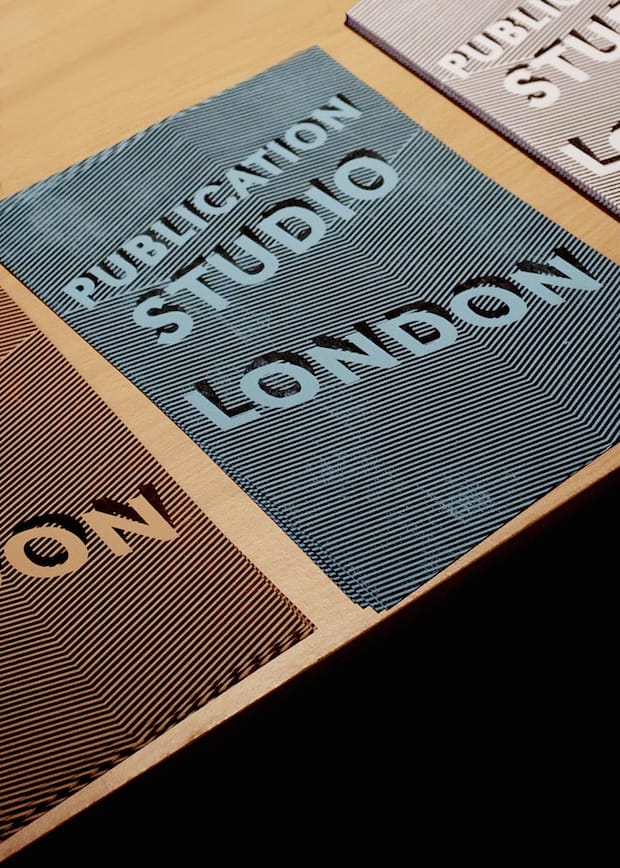As print-on-demand publishing model Publication Studio launches a London wing of the Portland-born enterprise, we caught up with UK founder Louisa Bailey to get to grips with the concept and talk about plans for the future.
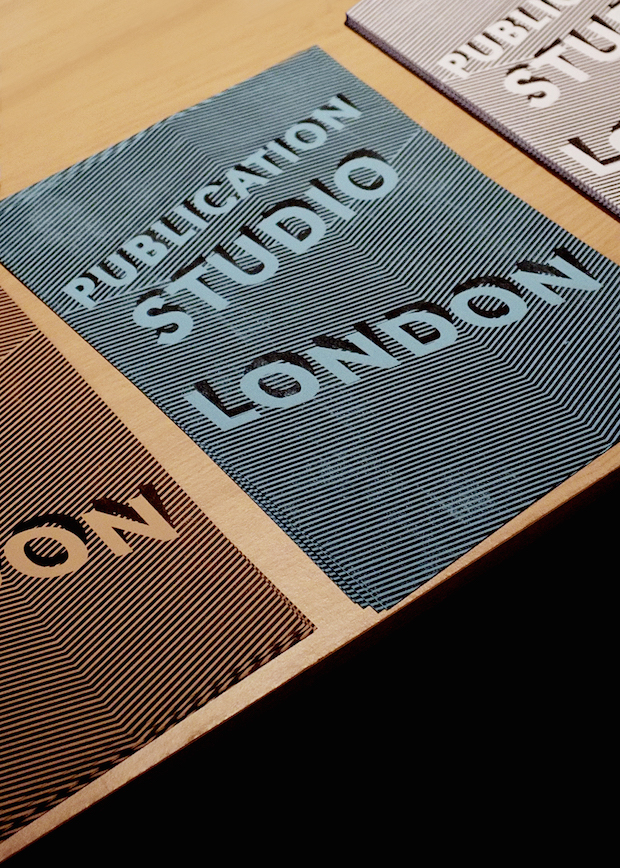
Tell us a little bit about the history of Publication Studio.
Louisa Bailey: Publication Studio prints and binds books one-at-a-time, by hand and on demand, using affordable and easily sourced materials and machinery to produce original work with artists and writers. Founded in Portland, Oregon, in 2009 by writers Matthew Stadler and Patricia No, Publication Studio now has twelve sibling studios across North America, Canada and Europe with a thirteenth opening soon in Rotterdam, NL. We all use the same basic machinery (a laser printer, perfect binder and guillotine) and by sharing digital files we can produce publications – from a large list of titles made in different cities around the world with local artists and writers, creating an alternative mode of distribution. By making books only on demand, and with the sale of each book funding its production, PS attempts to establish a sustainable publishing model and a direct relationship with readers. This network of studios, which also hosts social events around the publications, is one of the ways in which the physical books are circulated and shared with readers. They are also available as e-books and can be freely read and annotated through a digital commons. Our global statement is: "Publication Studio is a laboratory for publication in its fullest sense – not just the production of books, but the production of a public."
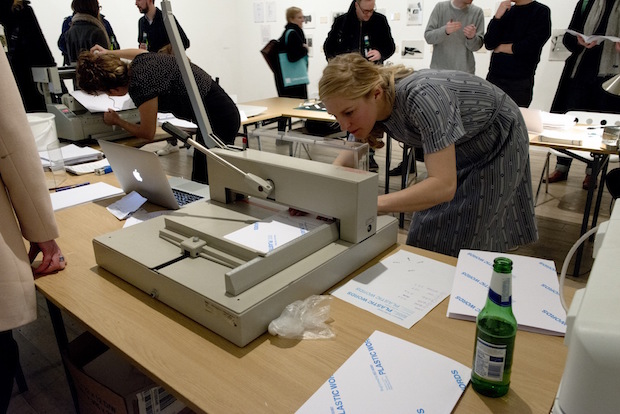
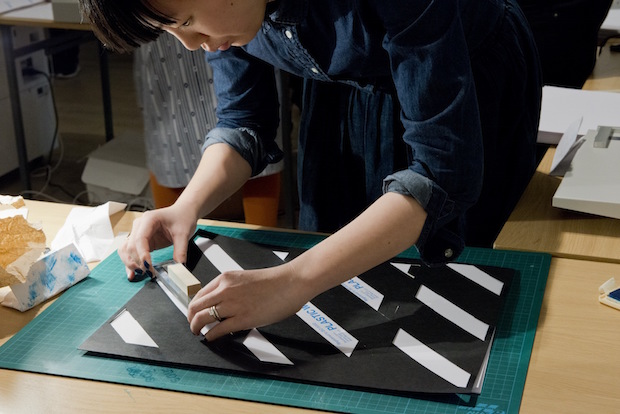
How did it start up in London?
LB: While I was working at the ICA Bookshop in 2010, I ordered some books for a talk author and Publication Studio co-founder Matthew Stadler was giving at the gallery and was really intrigued by the idea of Publication Studio. A year or so later I met Kathy Slade who runs Publication Studio Vancouver with Keith Higgins. Several months (and visa applications) after that I moved out there and interned with them. On my way back to the UK I stopped in at PS Portland and we talked about setting up a London studio.
How will it be operating in the UK?
LB: Each studio works on projects autonomously and the set-up varies from open studios and storefronts to those that are attached to exhibition spaces or institutions and some that are used within teaching or artists’ practice.
Publication Studio London launched in February 2015 as part of the series of events Plastic Words at Raven Row and is the first UK offshoot. We are hosted by the London Centre for Book Arts, an open-access educational and resource centre dedicated to book arts based in Fish Island near Hackney Wick in east London. We are currently in the process of setting up over there. PS London will develop, produce and distribute new works and also print and bind books by our sibling studios available on demand, through the PS website and through the LCBA bookshop open to the public five days a week. We will also host events in collaboration with LCBA around the publications and activities at the studio.

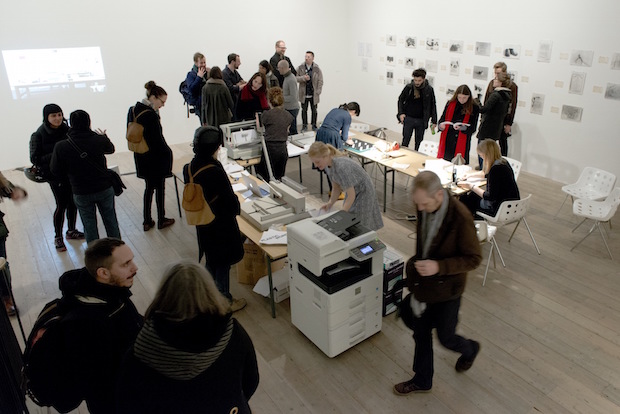
How do you choose artists, writers and designers to collaborate with?
The general approach will be a combination of submissions, commissions and collaborative projects. We’ll choose work we are excited about and develop this into publications with people who are interested in using the PS model. The print-on-demand set-up and the making of each book by hand allows for a flexibility and experimentation not possible with the large print runs of conventional publishing. All the designers I've worked with on projects so far have been great at responding to the idea of publishing in this sort of more spontaneous way.
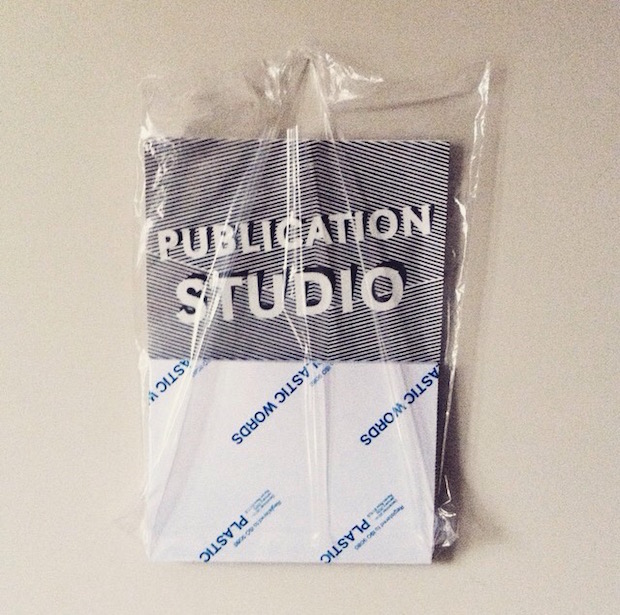
Why was Plastic Words a good fit for your launch?
LB: The six week series of events hosted by Raven Row from December to January 2015 explored the space, parallels and overlaps between contemporary literature and art. The itinerant bookshop I run, Luminous Books, was on site as a pop up for the duration and it was through this that the conversation about initiating PS London as part of the project began as a way to gather and distribute the material generated by and related to the events.
Working with the organisers, editors and fantastic list of contributors to produce a publication, something quite immediate and responsive to the activity at Raven Row, seemed like an ideal use of the PS equipment and also tied in to the discussions at some of the other events in the series around expanded notions of publishing. The momentum generated by the series and the cumulative process of putting the publication together as transcripts, essays, images and reading lists and other material became available offered an energy that drove the project and it seemed fitting to perform the live printing and binding of the publication on site at the final event marking the beginning of PS London.
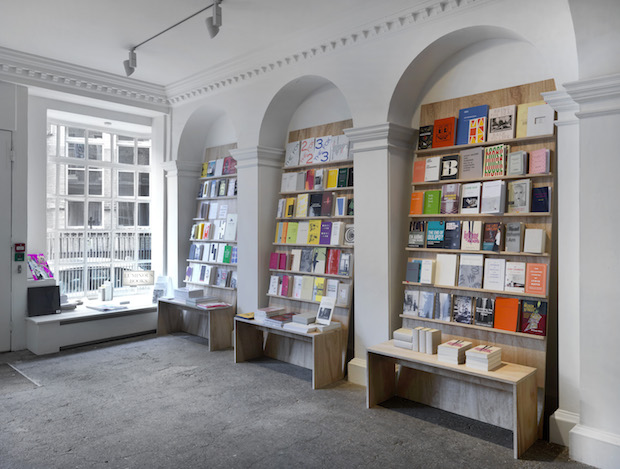

What’s next on your publication schedule?
LB: I’m not sure if it will be next but one upcoming project I’m excited about getting involved in is a collaboration with Three Letter Words, a non-profit organisation who support and promote independent and artist-led publishing, on a magazine connecting artists, writers, editors and readers between London and Havana, more details on that coming soon.
publicationstudio.biz
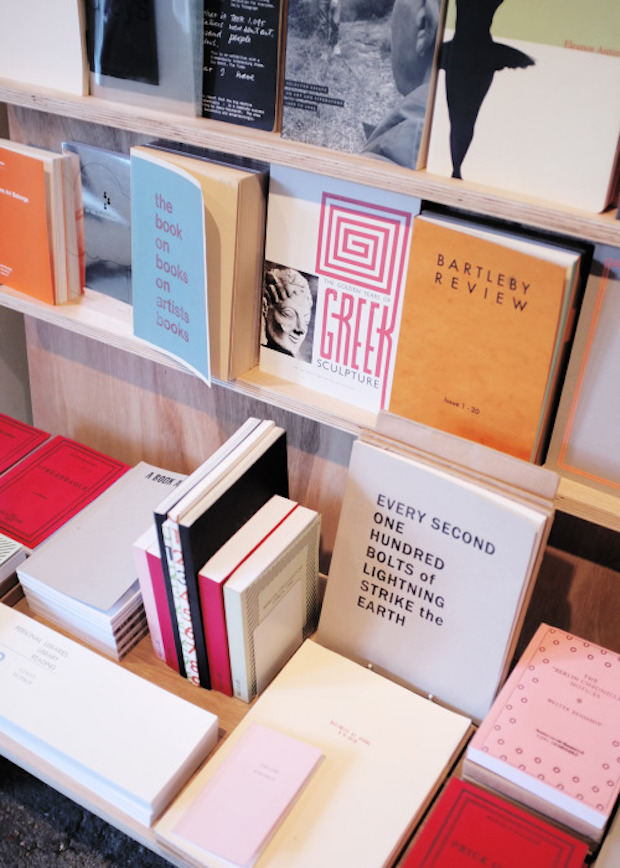
Publication Studio London
c/o London Centre for Book Arts, Unit 18 Ground Floor, Britannia Works, Dace Road, London E3 2NQ
LCBA is open Tues-Sat 10-6pm
For PS London operating hours please contact pslondon@publicationstudio.biz
Plastic Words (edited by Louisa Bailey, John Douglas Millar, David Musgrave, Luke Skrebowski, Natasha Soobramanien and Luke Williams) featuring contributions from Helen DeWitt, Brian Dillon, Janice Kerbel, Chris Kraus, Tom McCarthy, McKenzie Wark and many others will be available through the Publication Studio Website soon.

